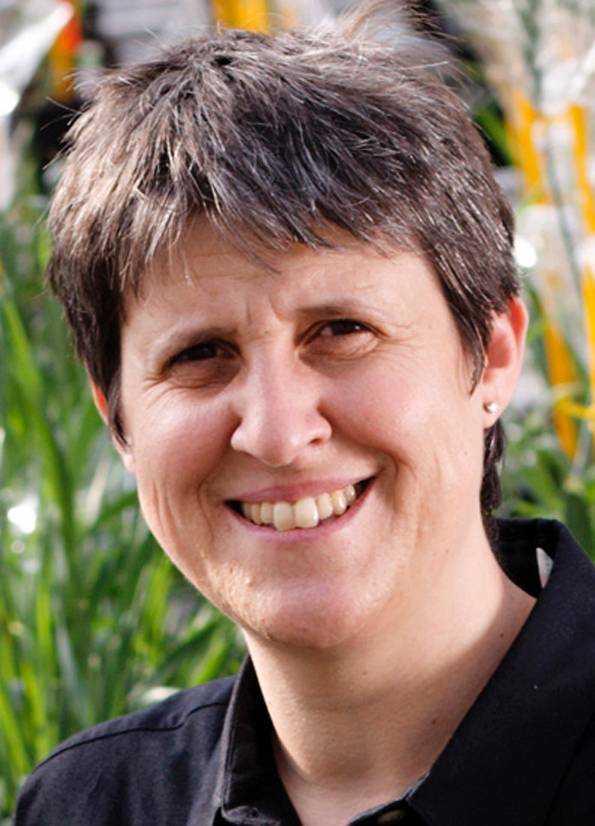Norman Borlaug Centennial Q&A's with Experts:
If Norman Borlaug posed the following questions to you... what would you tell him?

"Develop your own opinions and critical thinking to be able to
understand the world around you."
Catherine Feuillet, Ph.D., Sr. VP Trait Research, Bayer CropScience
France
Q: What’s the one thing – the single most important – that we need to address to solve food insecurity?
A: Ensure that agricultural research and development is again at the highest level on the agenda of all countries and involves all public and private stakeholders.
Q: Do you think we can feed 9 billion people by the year 2050? If so, why? If not, why not?
A: I really do hope that we will be able to feed 9 billion people by the year 2050. We are running out of time and must focus our collective attention to advance progress and deliver solutions to all farmers. I believe that as for the first green revolution, science and innovation will be a key component of meeting the greatest challenges of our times.
Q: Where are the biggest gaps right now in the food system?
A: The biggest gap is the general lack of investment in agricultural research and development compared to other sectors. Lack of education in developed countries to understand the importance of agriculture for the socio economic development of our societies also hampers the efficiency of the overall food system. Among research gaps, wheat research, particularly in the area of yield increase, presents a significant area of opportunity throughout the food system but it is not sufficiently investigated. Wheat research suffers from underinvestment compares to other crops such as corn because it is perceived as a crop of low value and is complex to improve.
Q: What’s one piece of advice you would give to young people?
A: Develop your own opinions and critical thinking to be able to understand the world around you. Learn about science and the way to critically analyze things! Even if you don’t end up in a profession that uses it on a daily basis, it helps you judge with rationality and not rely on beliefs.
Q: How would you explain what you do, and why it’s important, to a 10-year-old?
A: I work to help farmers grow their crops in a better and bigger way to feed the planet.
Q: Within your area of expertise, what is one misunderstood or neglected topic you could shed some light on for readers?
A: There is a misperception that those of us in companies working for agriculture are driven mostly by profits. My colleagues and I are focused on providing farmers the best tools possible so that they can create more with less and we are all passionate about the possibility to contribute to food security through our work. I have been working for more than 20 years in public research in wheat and my passion to discover and provide new tools, resources and capacities to farmers has not changed at all since I joined industry. I see the opportunity to contribute even more efficiently and see how well public and private research in wheat can work together to meet the challenges.
Q: What is the most interesting project going on right now – yours or someone else’s - that more people should know about?
A: People should know that Bayer CropScience will invest more than 1 billion Euros in wheat research and development over the next 10 years because we believe it is time, and we can help to make a difference.
Q: What’s one thing the general population could do to make an impact on global food security?
A: The area of food waste is one in particular in which everyone can play an important role. It is easy to take steps to ensure that we don’t over purchase or discard perfectly good food and everyone benefits when people donate unused food.
Q: What is one of your favorite quotes or words to live by?
A: No one can be a statesman who is entirely ignorant of the problem of wheat. (Socrates)
They did not know it was impossible, so they did it. (Marc Twain)
Q: Share with us one of your most unique life experiences and what it taught you.
A: Listening to an Ethiopian farmer who was addressing the scientific community in a BGRI meeting explain why she needs science and technology to feed her family. Hearing this statement from a farmer is the most motivating thing of all.


